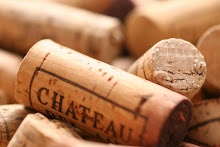 In a word, maybe. Australia has been tough on wine investor/speculators.
In a word, maybe. Australia has been tough on wine investor/speculators.The past five years have shown little motion in such Australian blue chips as 1971 and 1976 Penfolds, which are both languishing around $500. Wild Duck Creek Duck Muck seems to loose $100/year regardless of vintage, and Chris Ringland Shiraz is stuck south of $1000 for the 1998, with other notable vintages auctioning for half or a third of that price.
Clarendon Hills Astralis gets released around $300 in a great vintage, but patient speculators can usually pick it up around $200 -$250, if they are willing to wait for the right auction. I got the 1996 Astralis for $160, held it for two years, and then drank it. I have also enjoyed the 1995 on two occaisions, and the 1997 on at least three. These early vintages are just getting out of their dumb phase, and they have emerged with their rich glycerine and fruit intact. It still takes the whole dinner for the bottle to open up fully - yet I don't feel that the wine is holding anything in reserve either. Its Sine Qua Non - like jammy character is morphing into something, but what? Astralis has everything going for it: 100 year old vines, brilliant winemaking, ...all it needs is a track record - something that Chris Ringland and Penfolds already have. Astralis was first produced in 1994, and it will take another 5 years to know for certain if these early vintages can age gracefully.
If you want a safe Australian bet, then 1976 Penfolds and 1998 Chris Ringland are your fist choices. It might be years before they get thier proper recognition in the marketplace, but if speculators ever discover Australia, these wines will be the first to move higher. If Astralis shows it can age, then it could make a bigger move. If you like a little more risk, or just need a cheaper entry point, Astralis could be ready to join Australia's big boys.



